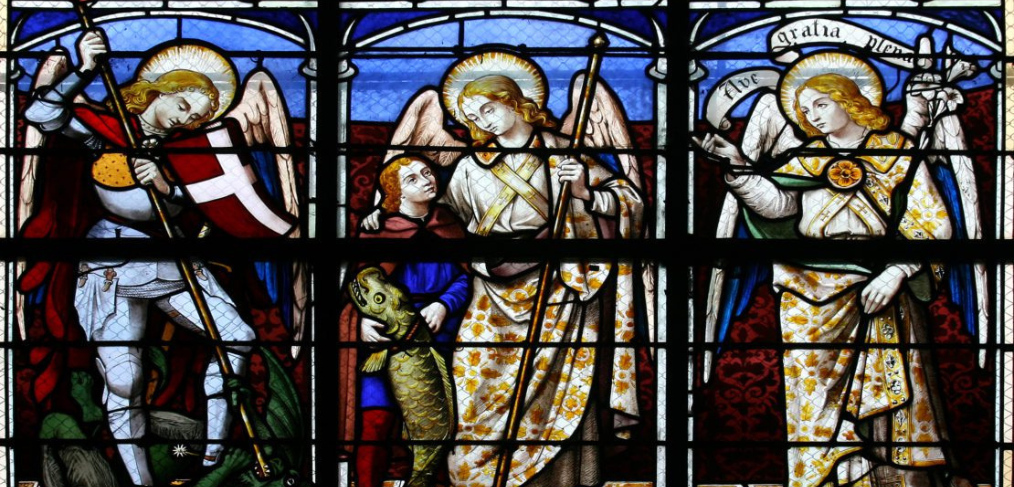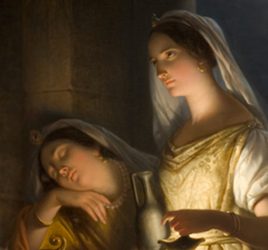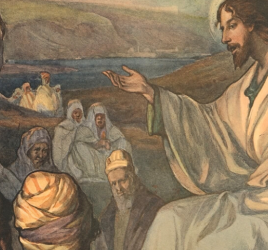
Protectors, Messengers, and Guides: The Intercessory Power of the Archangels
St. Josemaria Escriva had a deep and personal devotion to the Archangels. He saw them as powerful intercessors and guides in the Christian life, and he often turned to St. Michael, St. Gabriel, and St. Raphael, trusting in their protection and assistance as he carried out his spiritual mission. For St. Josemaria, the Archangels were not distant beings but active and loving participants in the lives of those who seek God’s will. His devotion to them was a reflection of his desire to align his life and work with God’s divine plan.
The Archangels: Chief Messengers of God
On September 29, the Church honors St. Michael, St. Gabriel, and St. Raphael in a special feast dedicated to the Archangels. According to St. Gregory the Great and St. Thomas Aquinas, these three Archangels are distinguished by their roles as chief messengers of God, delivering the most significant divine messages to humanity. They are the only Archangels mentioned by name in Holy Scripture, and each of their names provides insight into the unique message they are entrusted with.
St. Michael, meaning “Who is like unto God?,” is known as the great protector of God’s people. He is depicted in the Book of Revelation battling Satan and defending heaven (cf. Rev 12:7). St. Josemaria often invoked his protection, writing, “I have entrusted the Work to Saint Michael, the great warrior, and I think he has heard me” (The Founder of Opus Dei, vol. 1, pp. 366-367 and p. 377).
St. Gabriel, whose name means “Strength of God,” reflects the infinite power of God through his announcement of the Incarnation to the Virgin Mary (cf. Lk 1:26-27). Reflecting on St. Gabriel’s mission, St. Josemaria wrote, “The Archangel comes down bearing a divine message — the announcement that Mary is to be the Mother of God — and he finds her withdrawn in prayer” (Friends of God, no. 241).
St. Raphael, whose name means “God’s remedy,” holds a special place in St. Josemaria’s spirituality as a powerful intercessor for healing and protection, particularly in the context of purity. Drawing inspiration from the Book of Tobit, where St. Raphael guides and protects Tobias on his journey, St. Josemaria encouraged invoking the Archangel’s help in safeguarding one’s purity. He often highlighted Raphael’s guidance to Tobias before marriage as an example for anyone committed to living a chaste and faithful life, whether their vocation is to marriage or another calling (cf. Tob 12:15; Christ is Passing By, no. 25). St. Josemaria wrote, “Commend yourself to the Archangel Raphael that he may keep you pure, as he did Tobias, until the end of the way” (The Way, no. 27).
St. Josemaria’s devotion to the Archangels stemmed from his profound understanding of their roles as revealed in Scripture. Recognizing the Archangels as protectors, messengers, and powerful allies against sin and temptation, St. Josemaria frequently invoked their intercession in his personal life and in his founding of Opus Dei. St. Josemaria’s devotion to St. Michael as God’s warrior, St. Gabriel as the announcer of divine strength, and St. Raphael as healer, reflects his deep understanding of the biblical and spiritual reality of the Archangels’ intercessory power as God’s chosen messengers. St. Josemaria wrote, “You tell me that in your breast you have fire and water, cold and heat, empty passions and God… Don’t worry: as long as you want to fight there are not two candles burning in your breast. There is only one: the Archangel’s” (The Way, no. 724).




